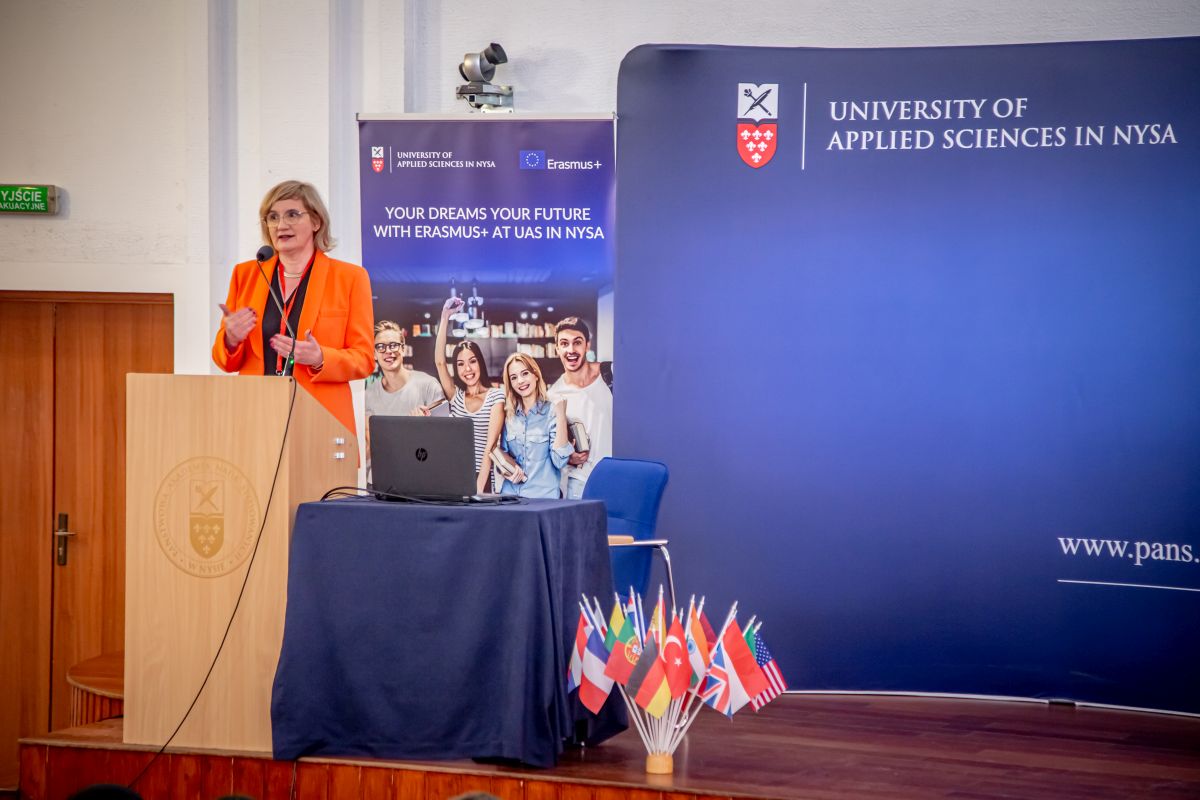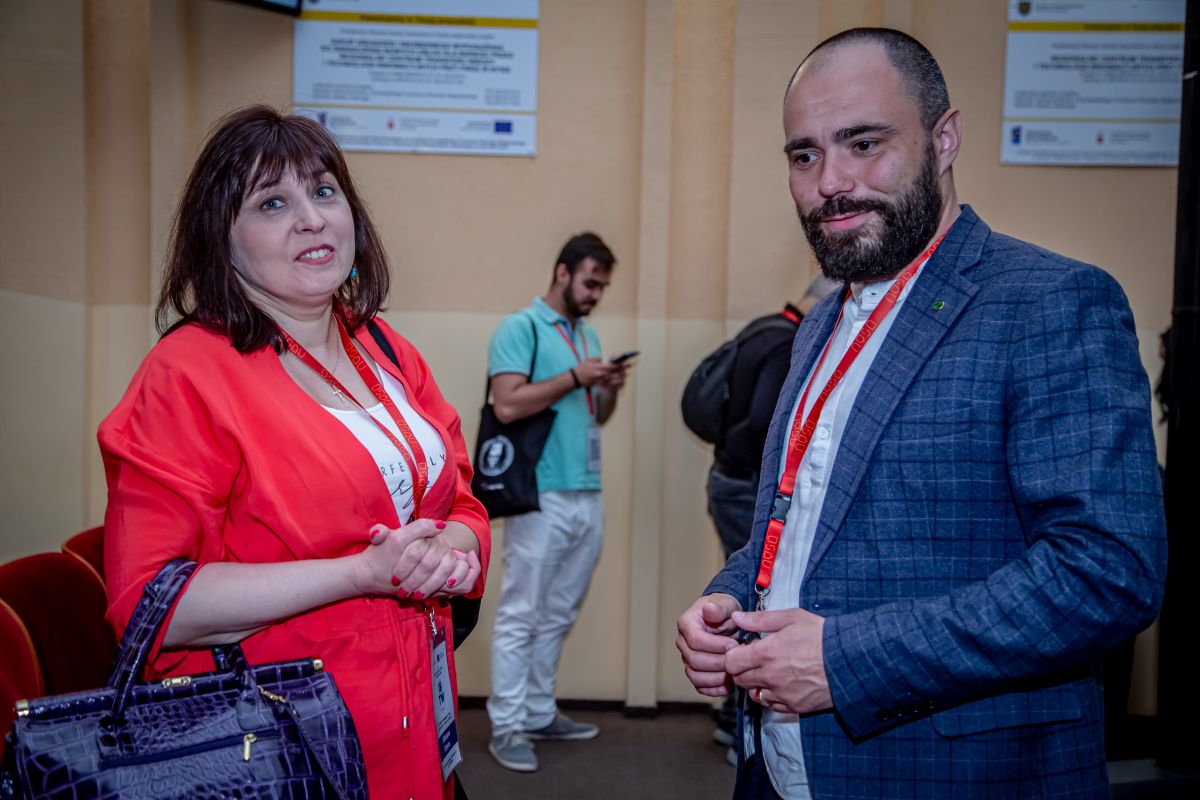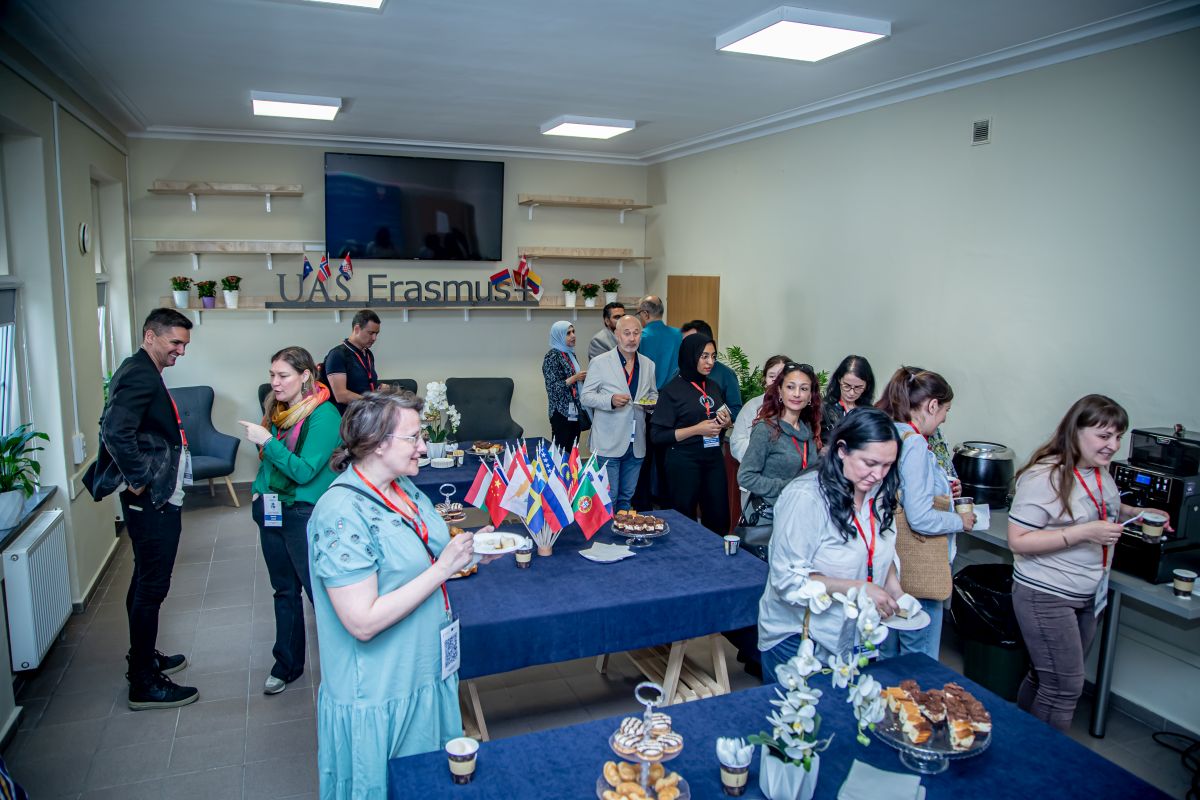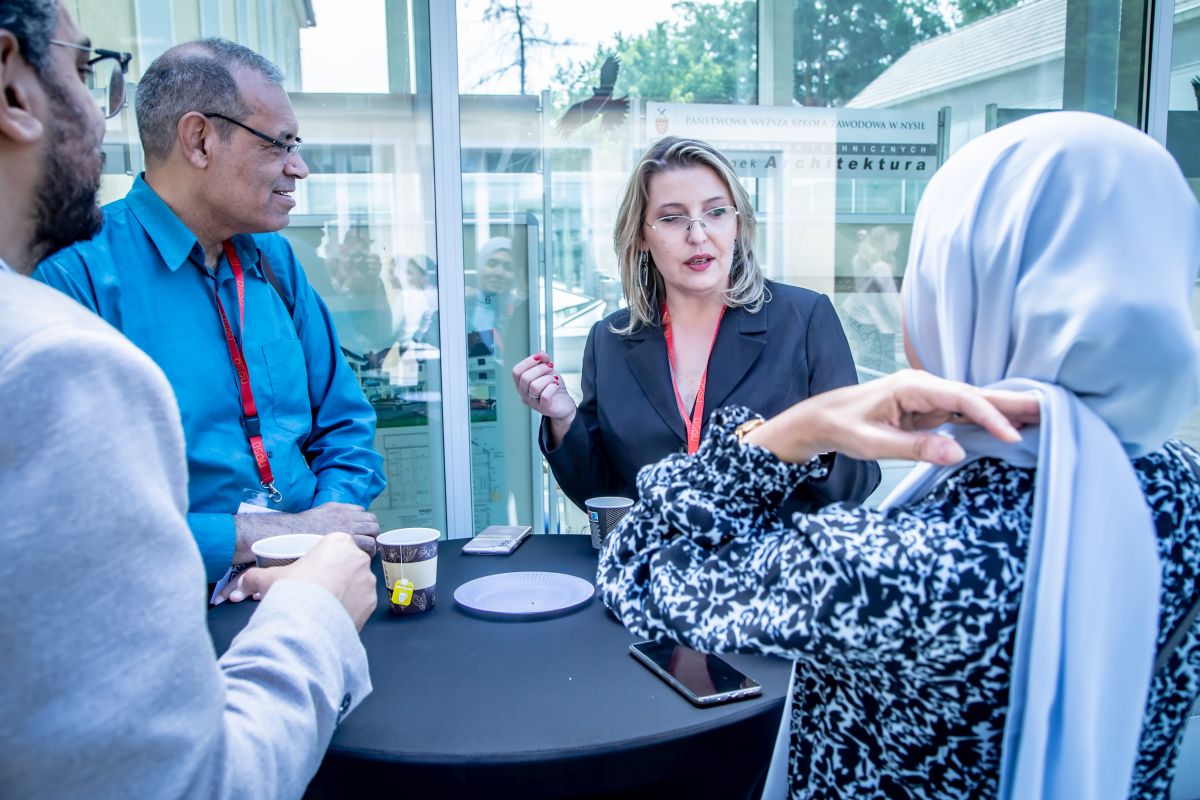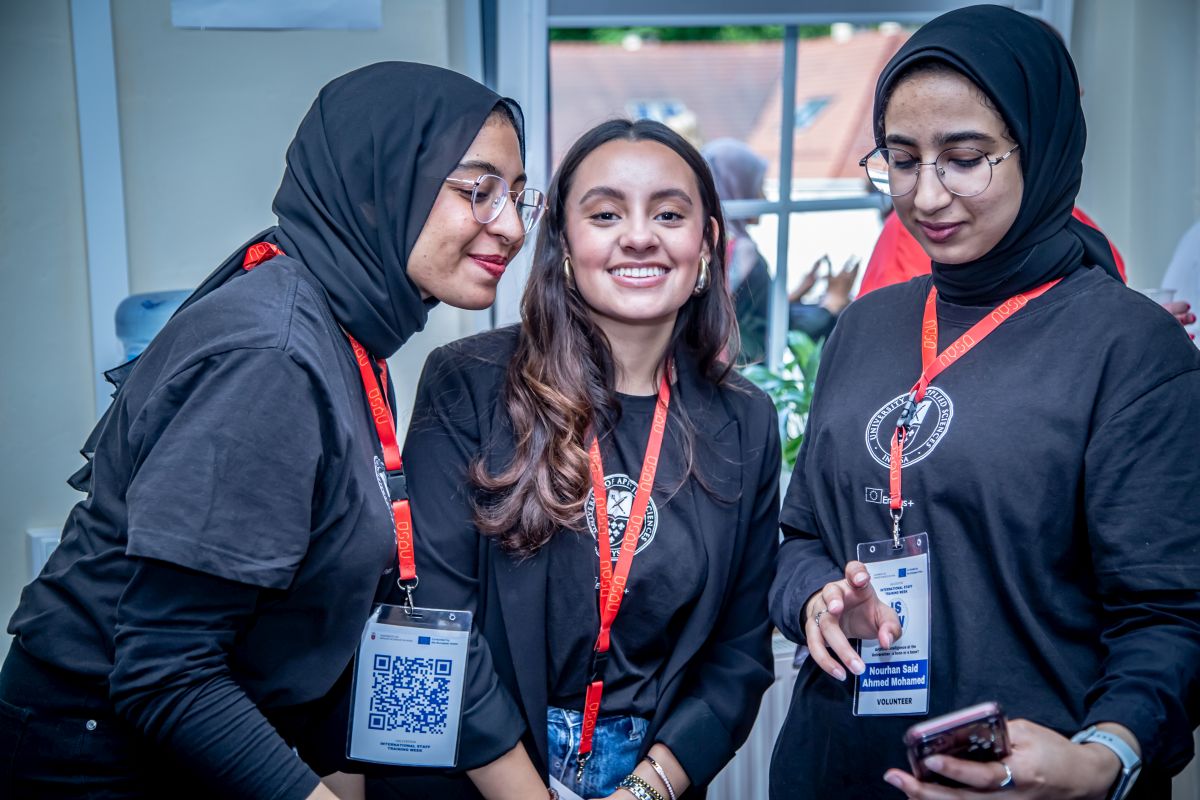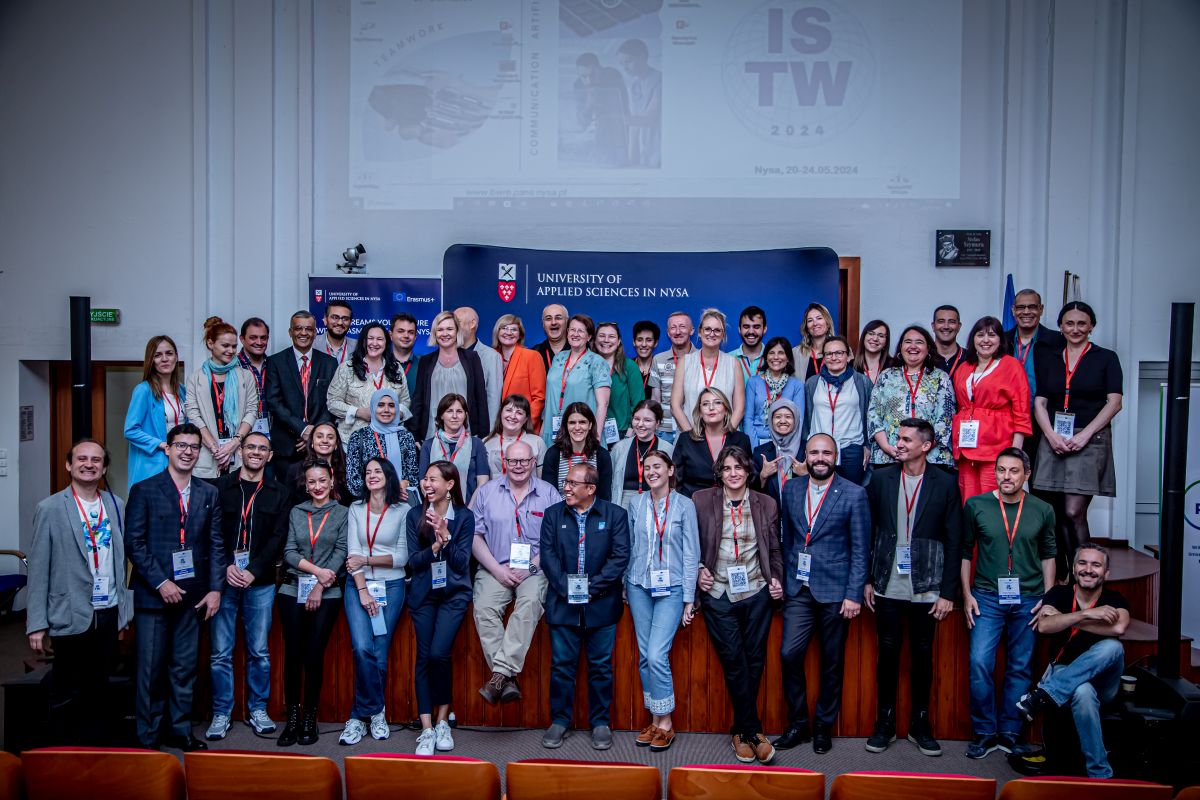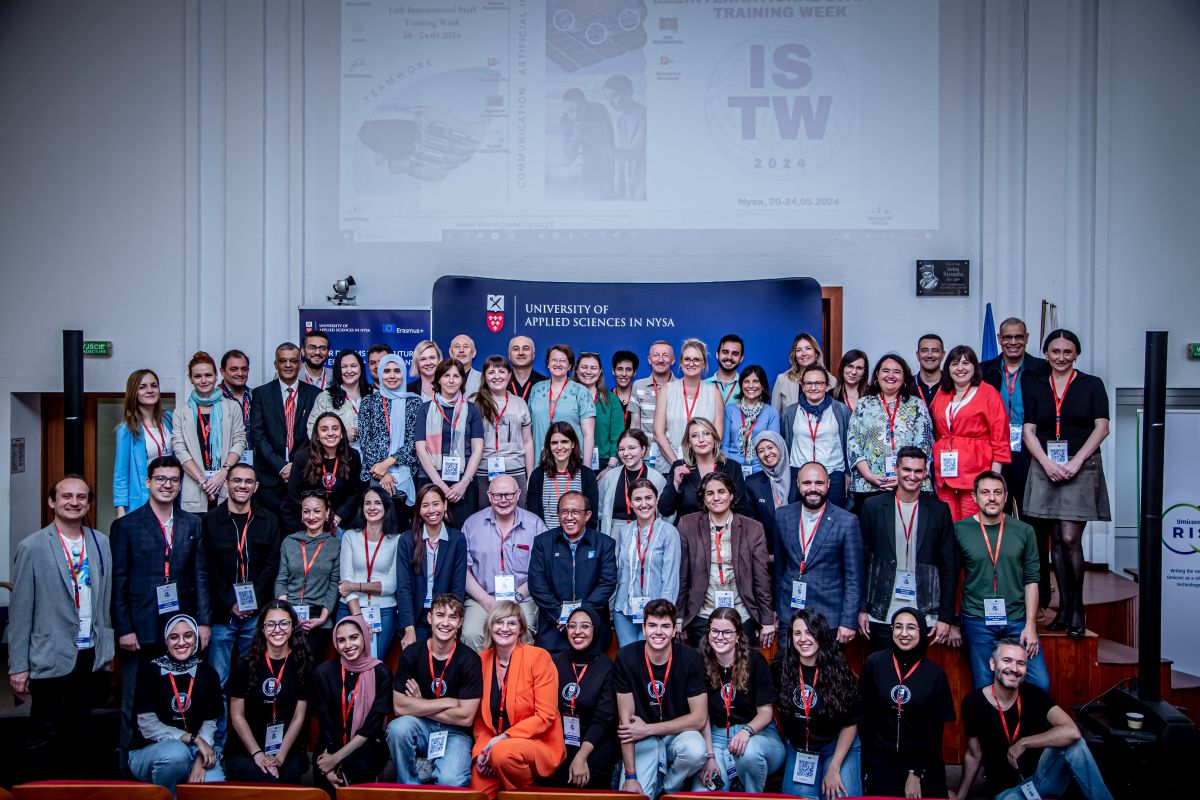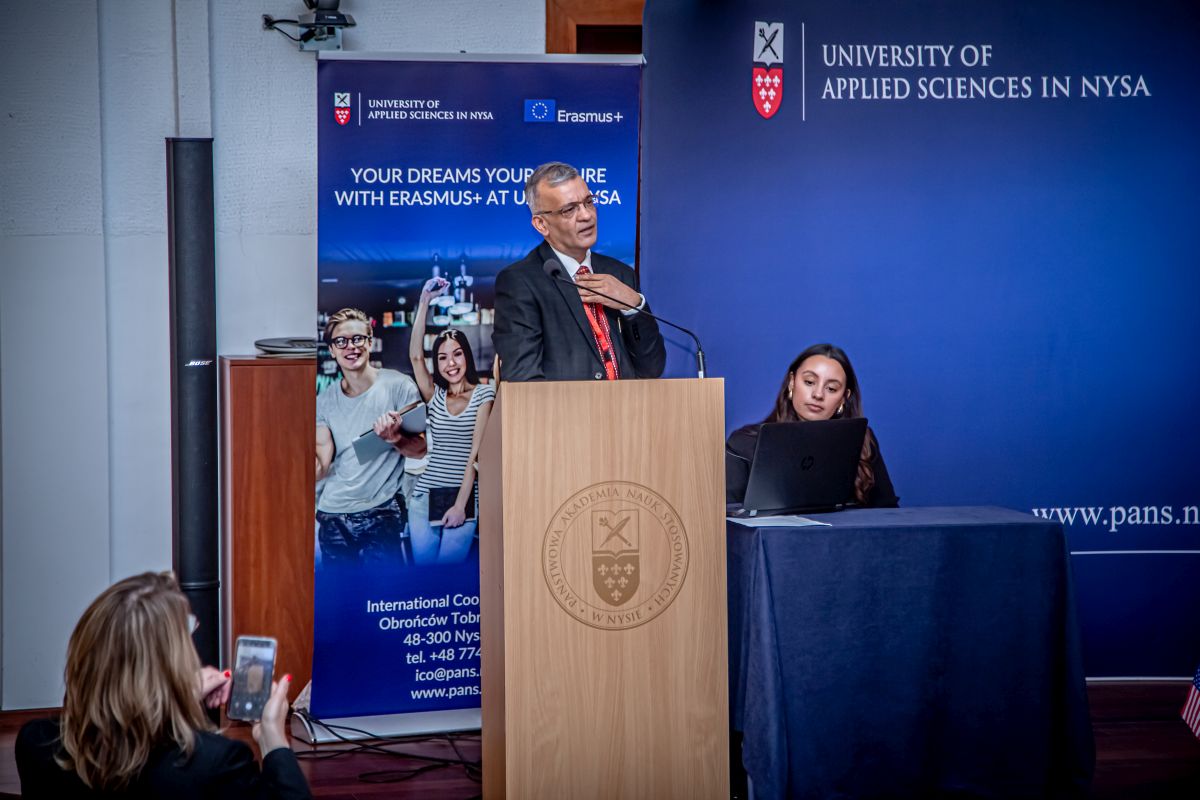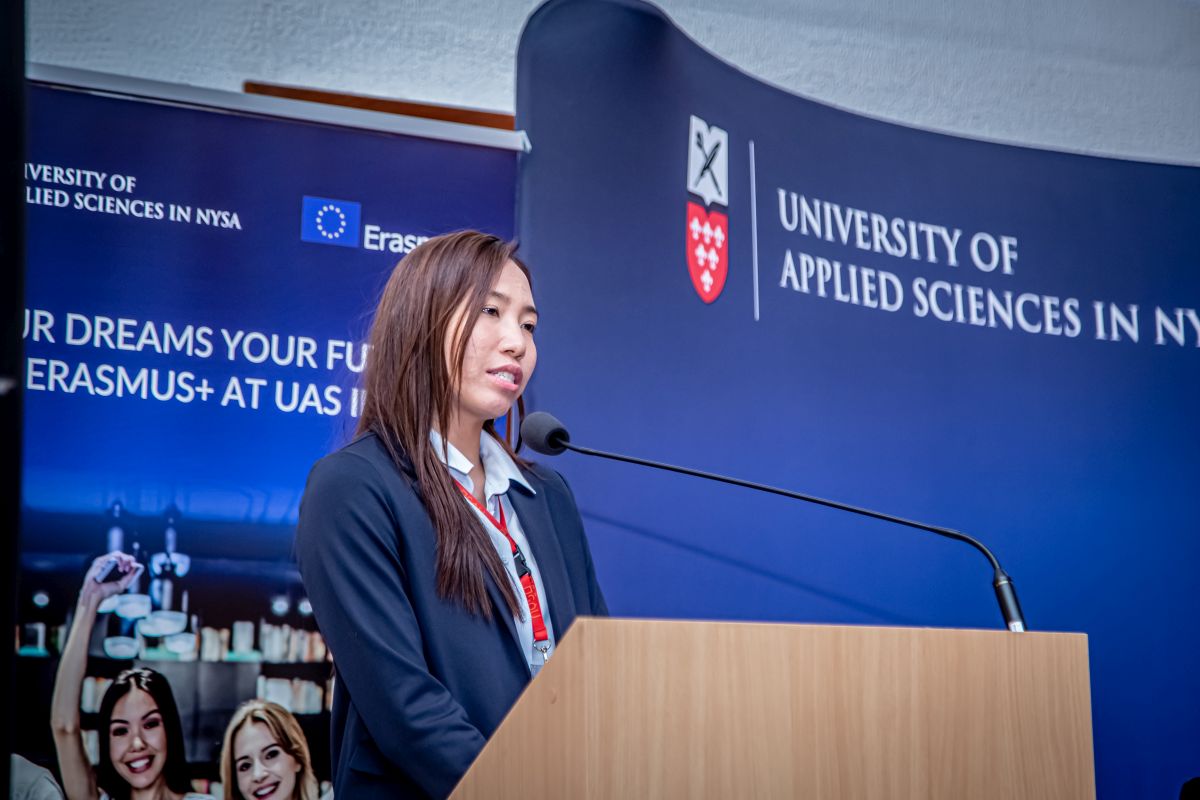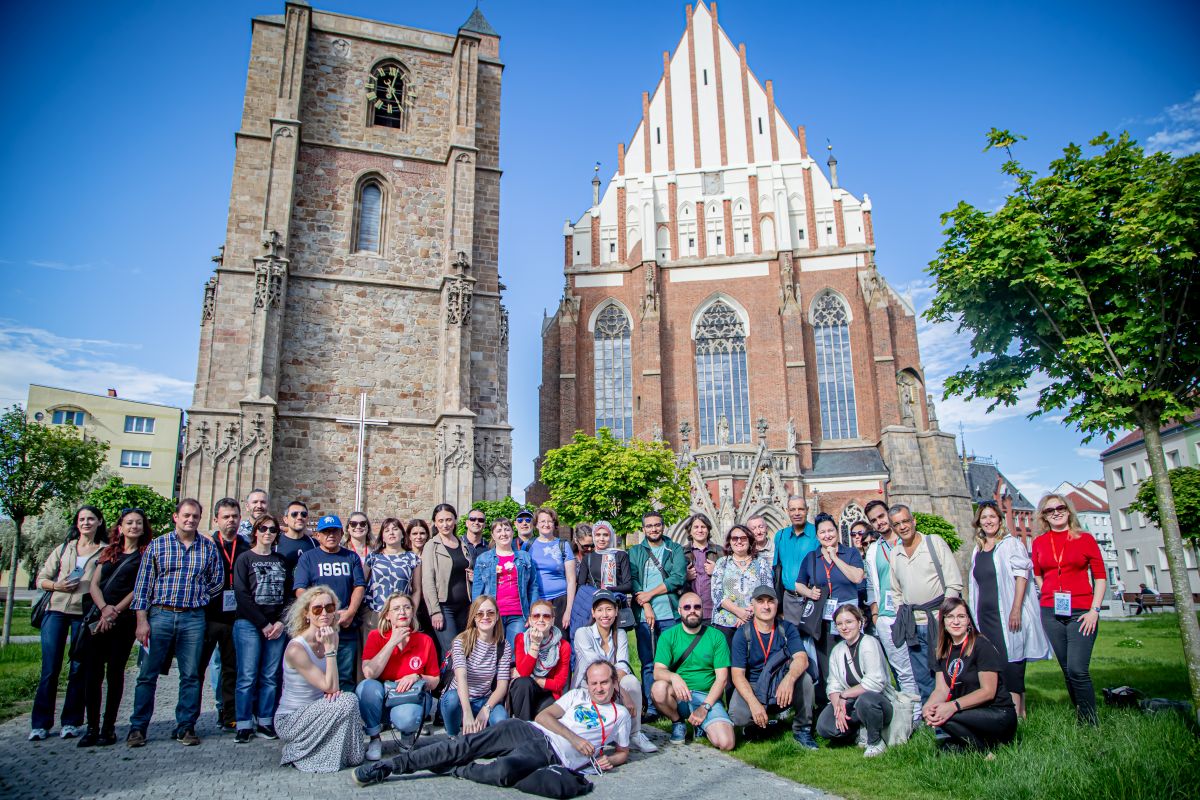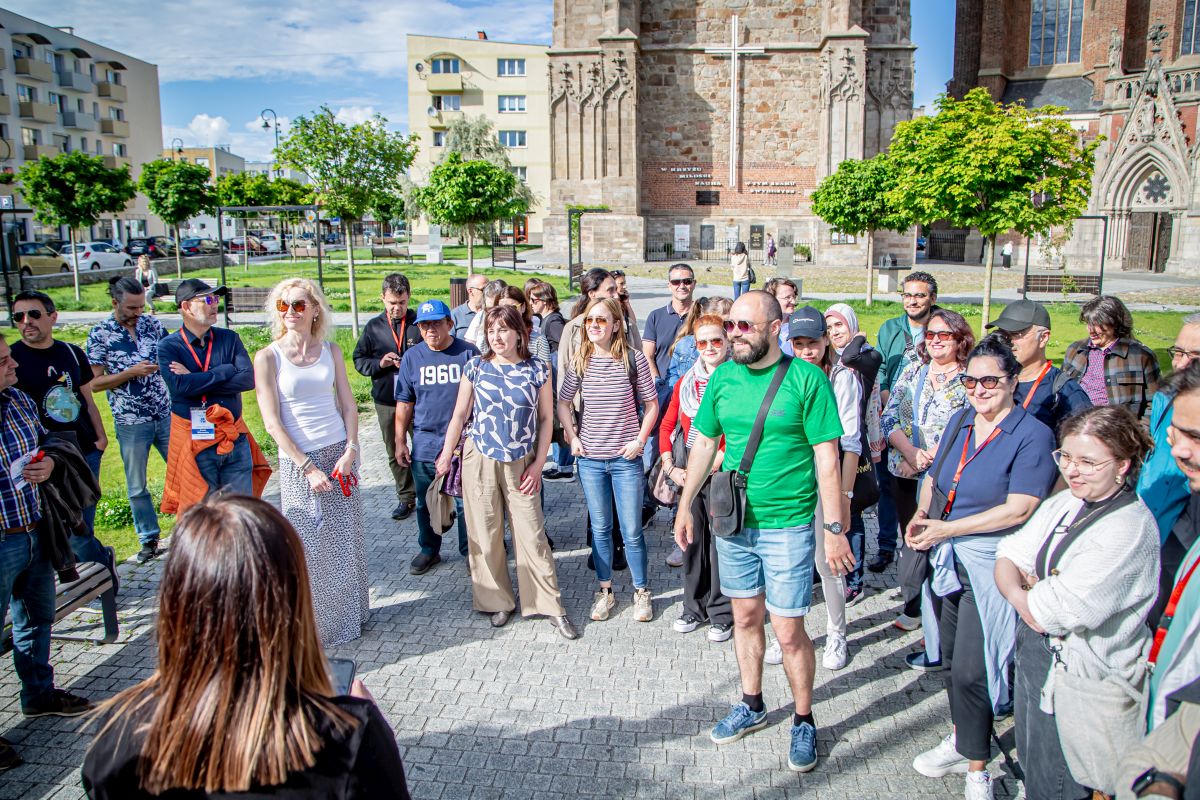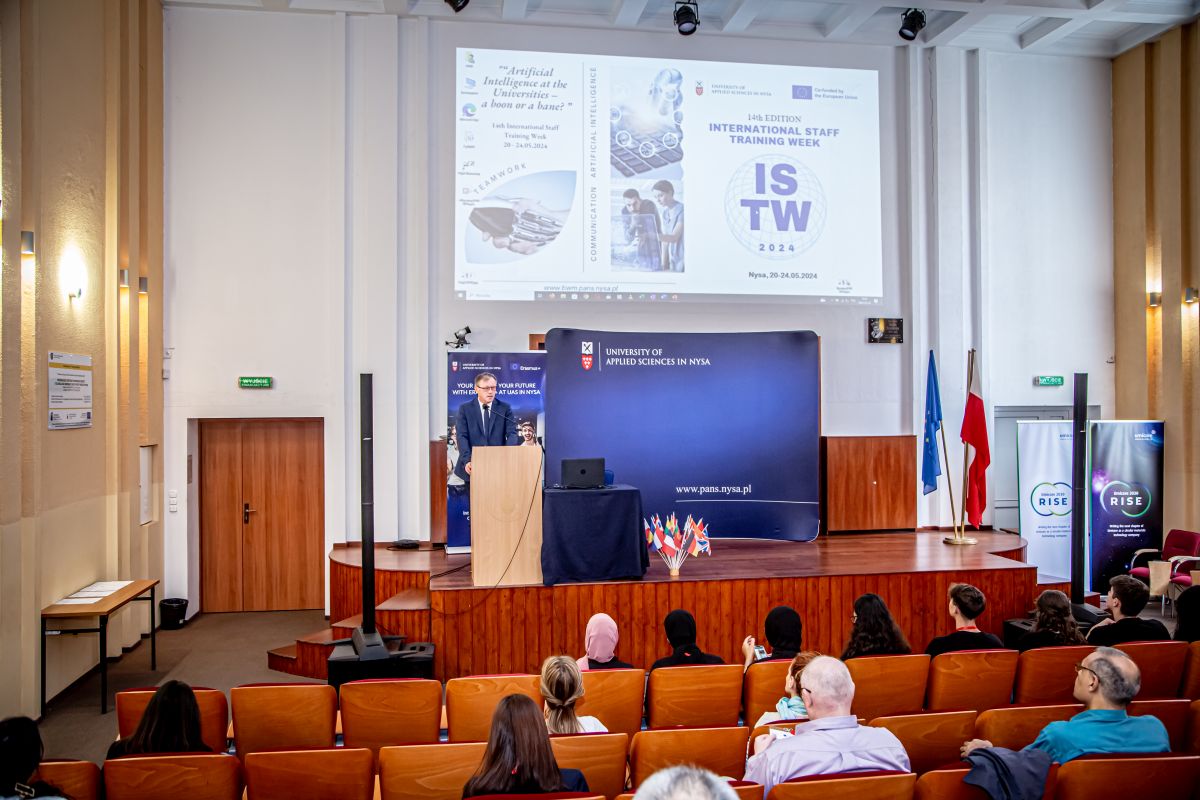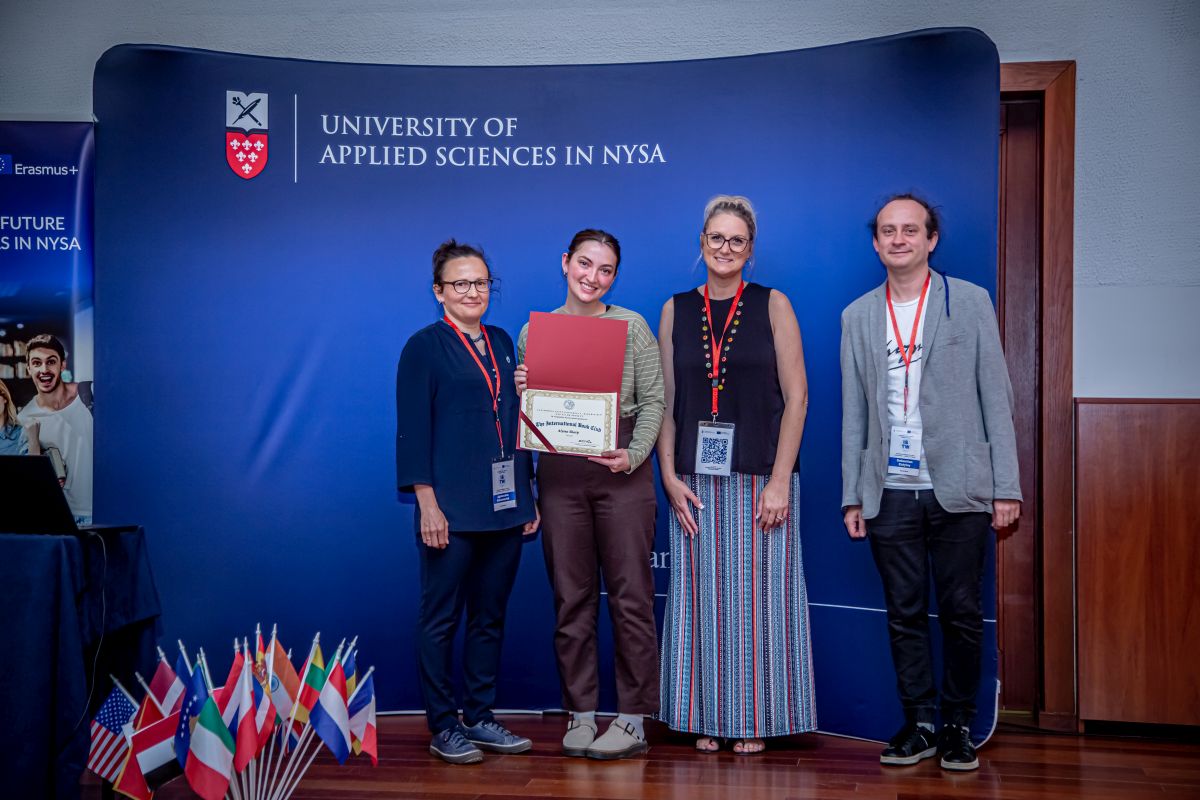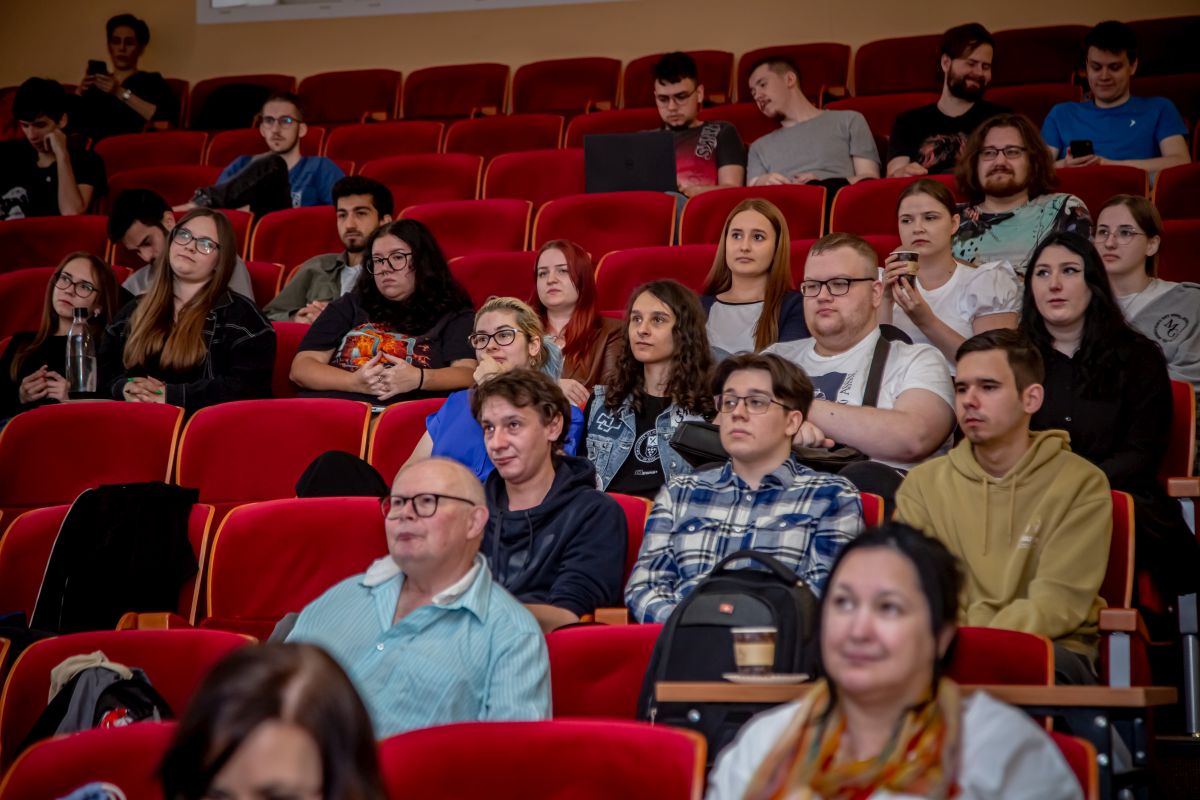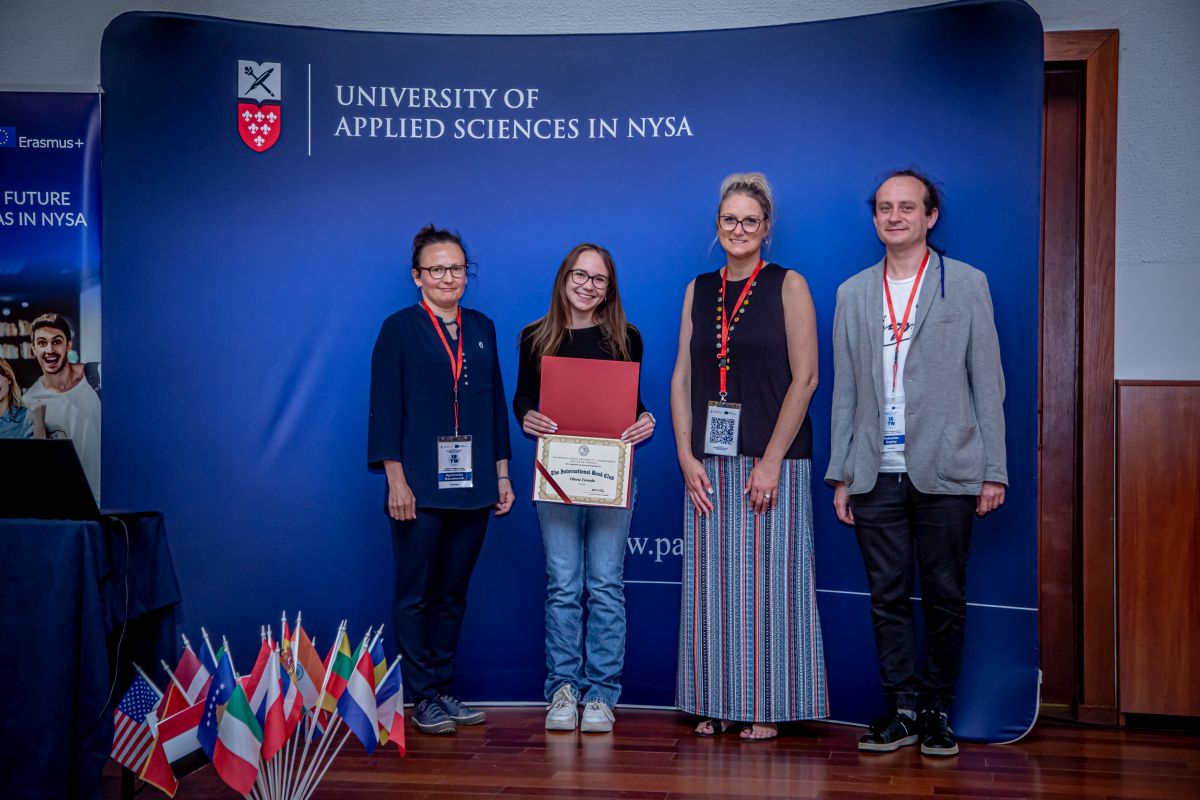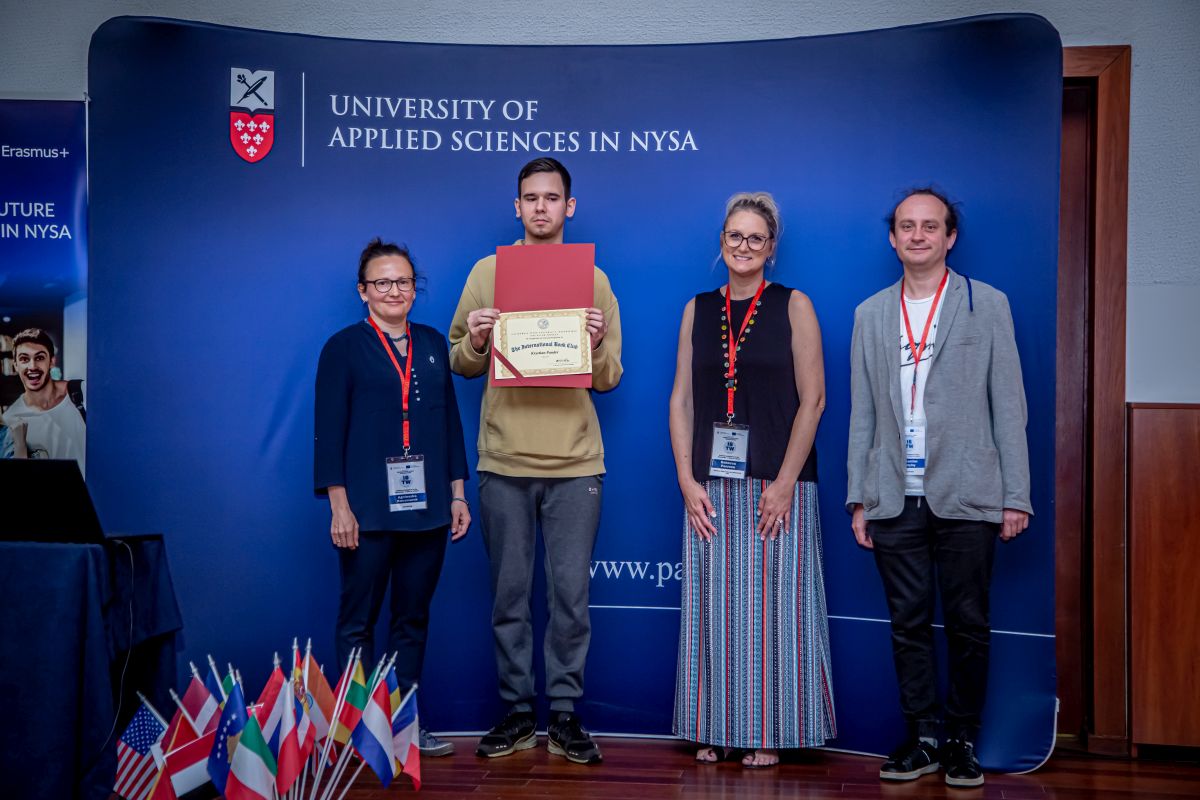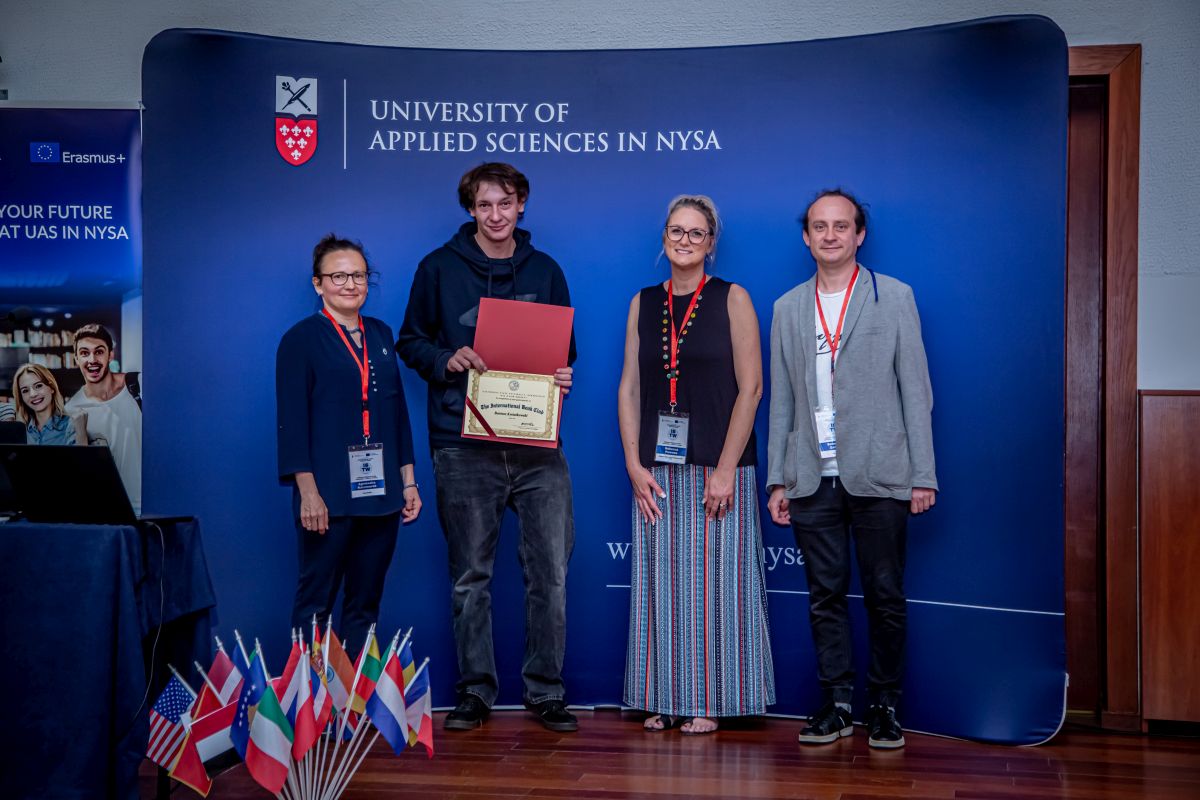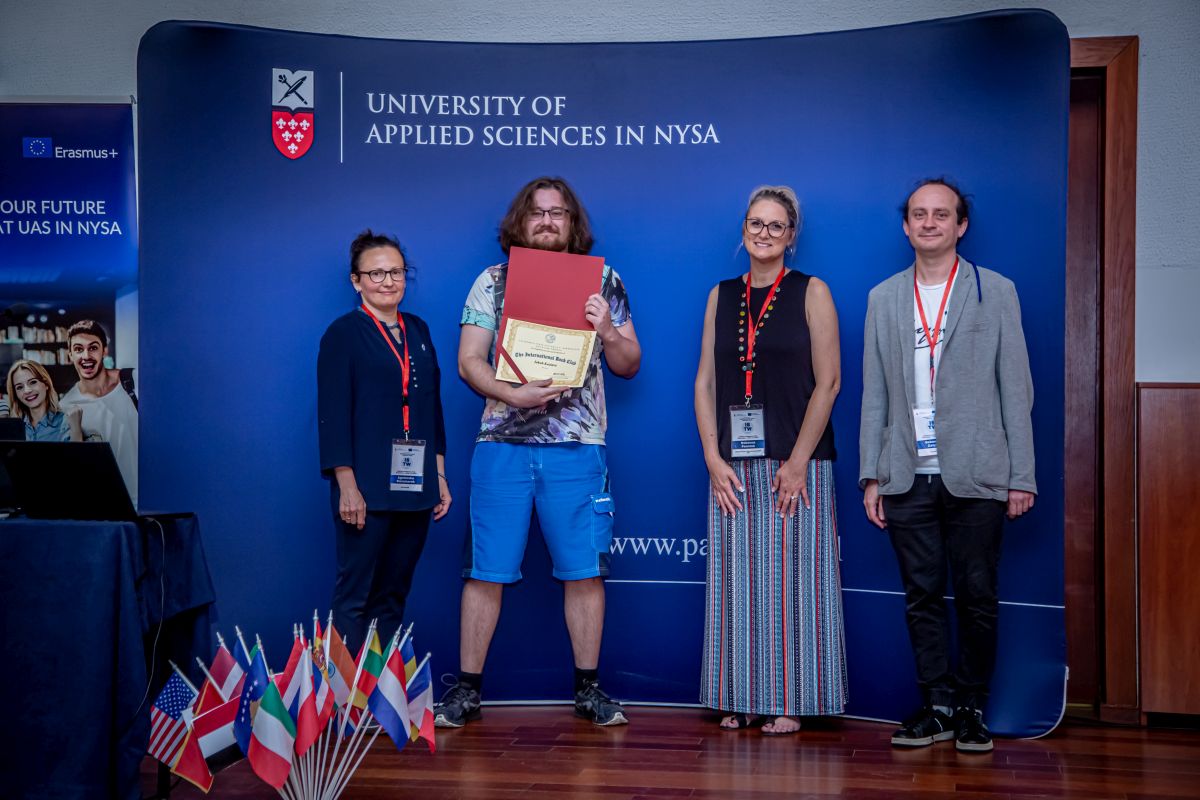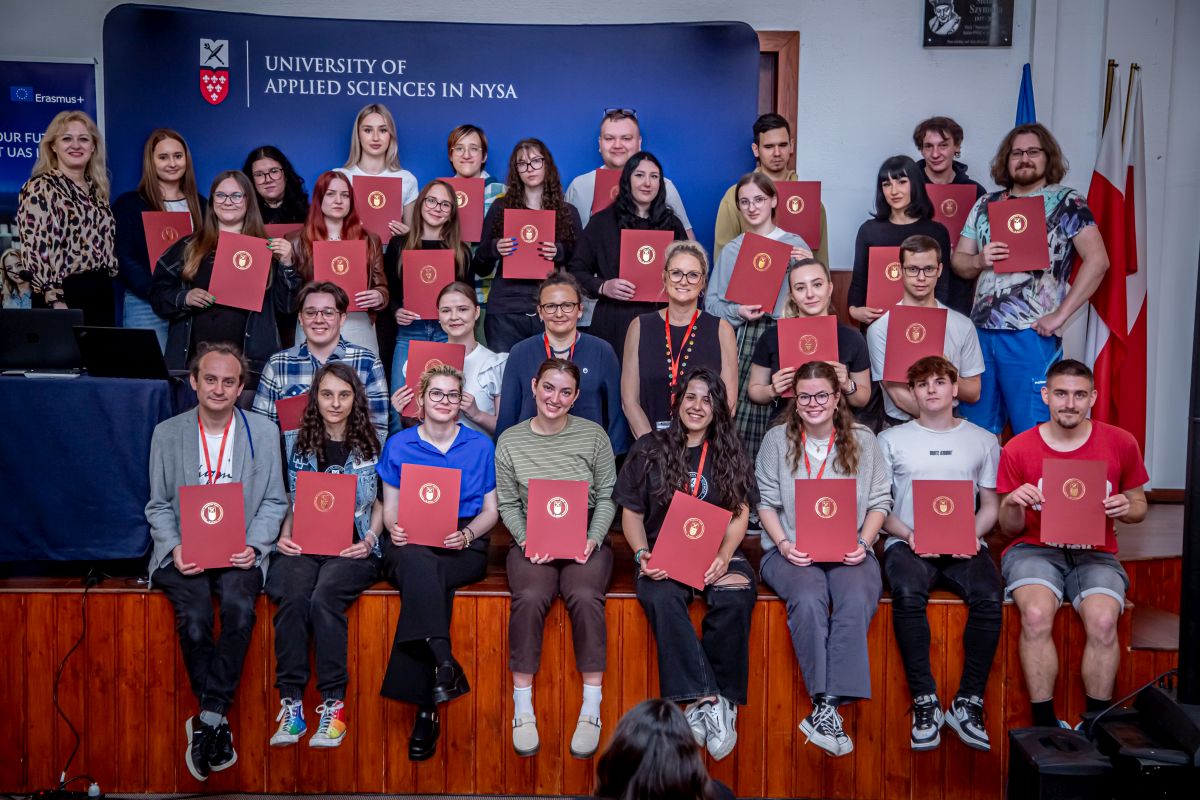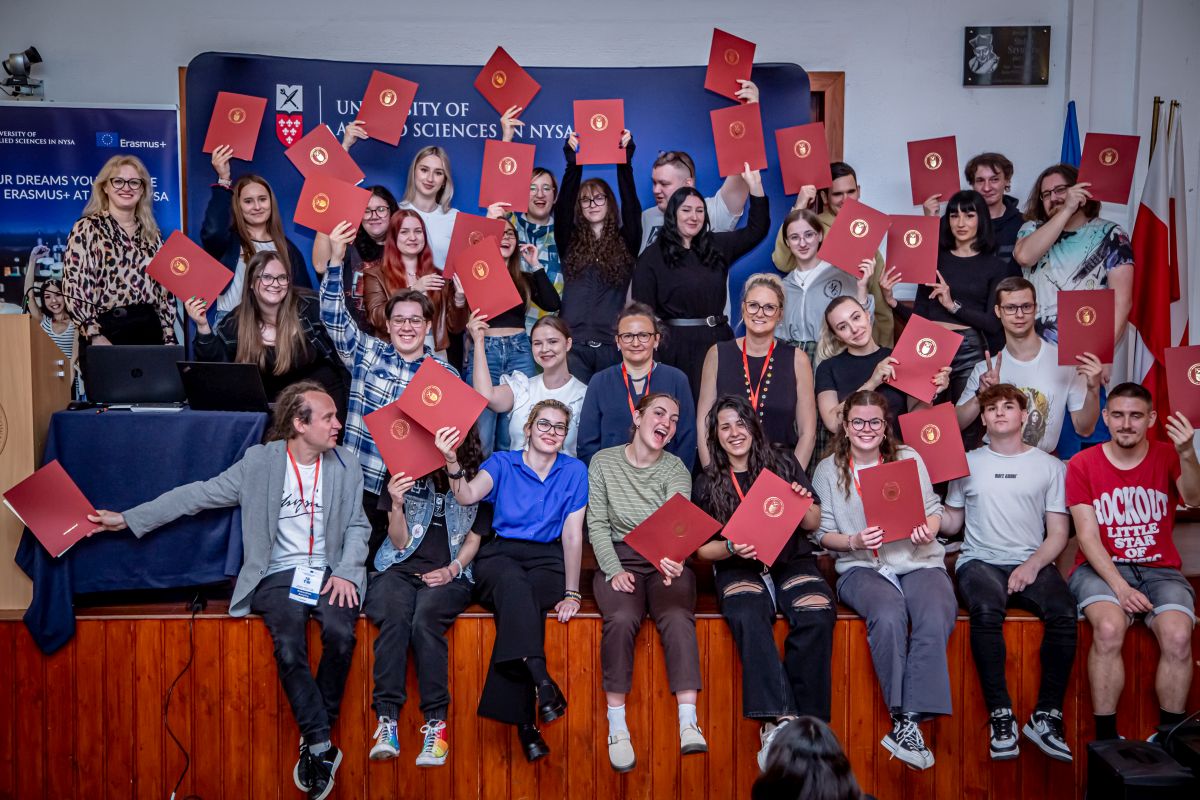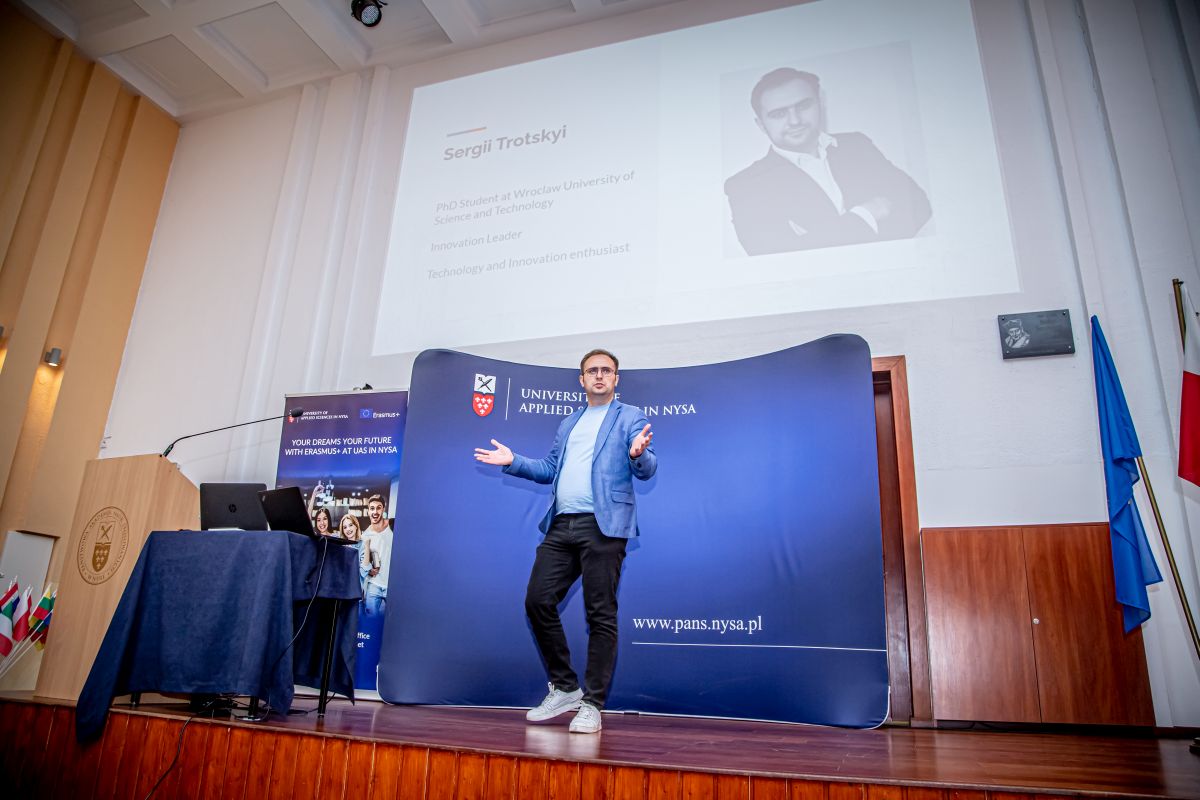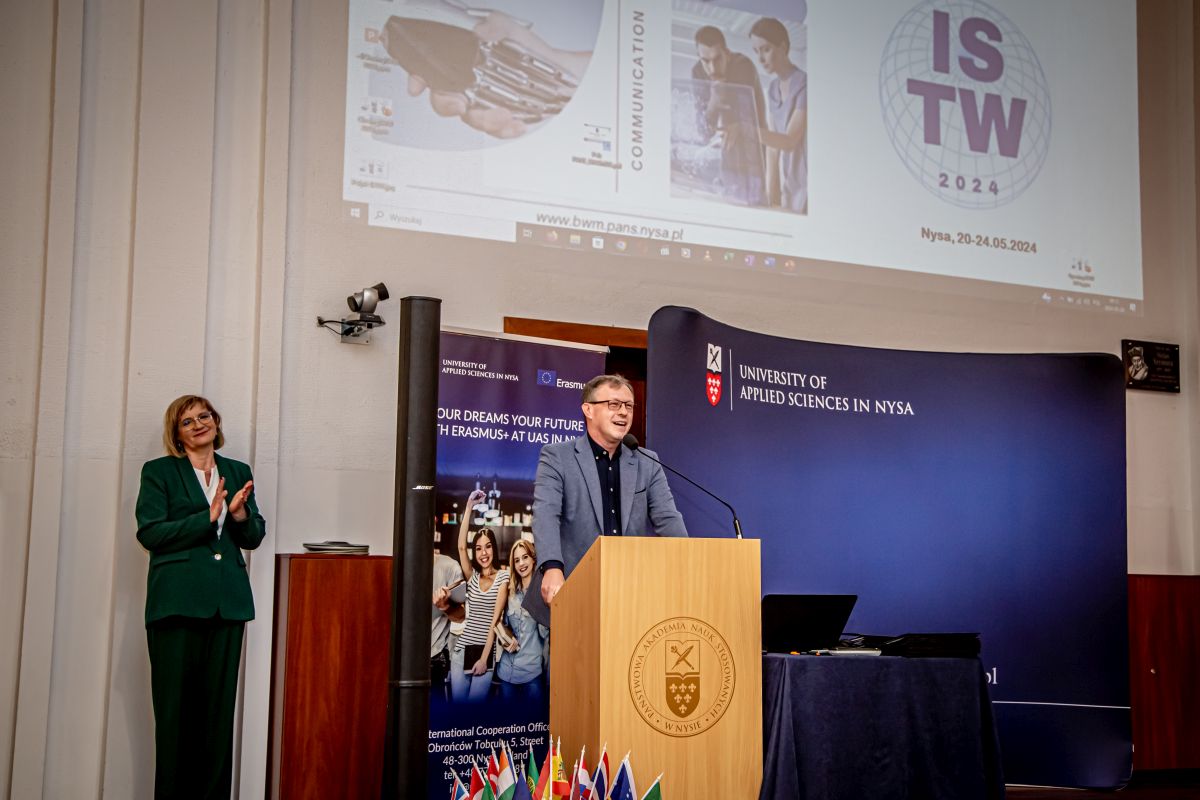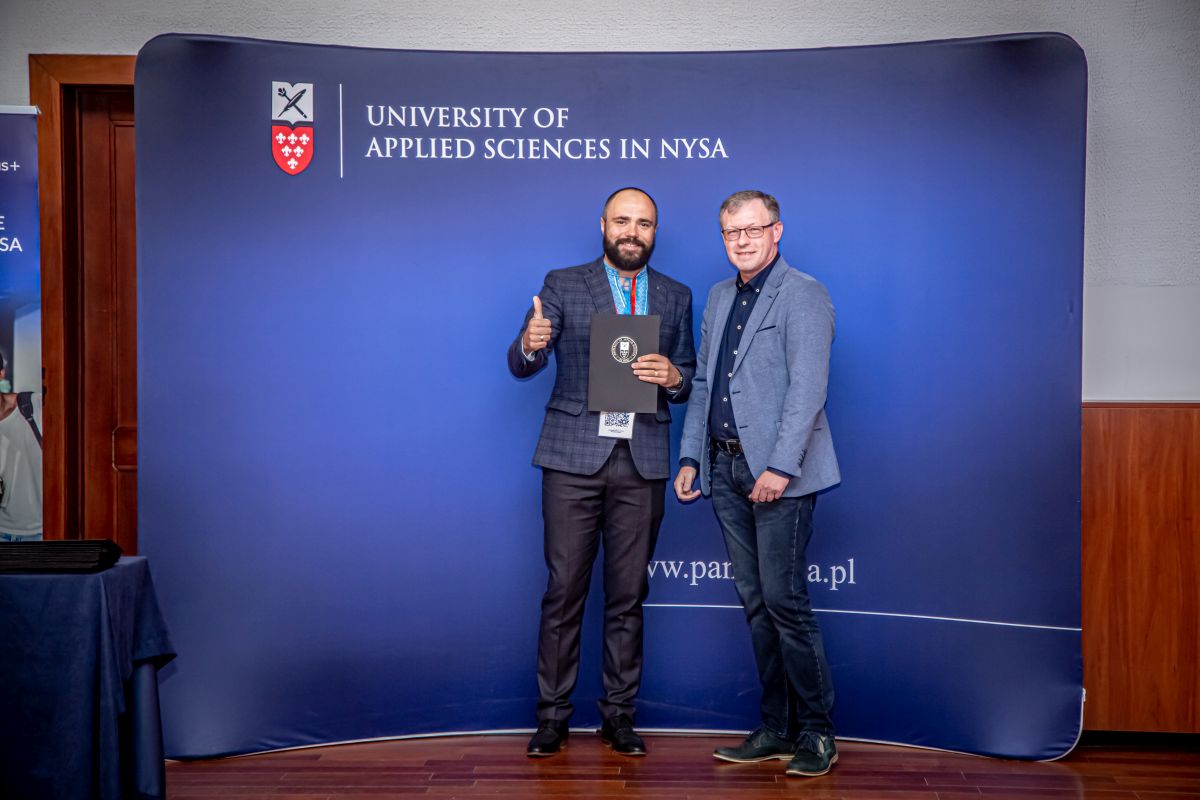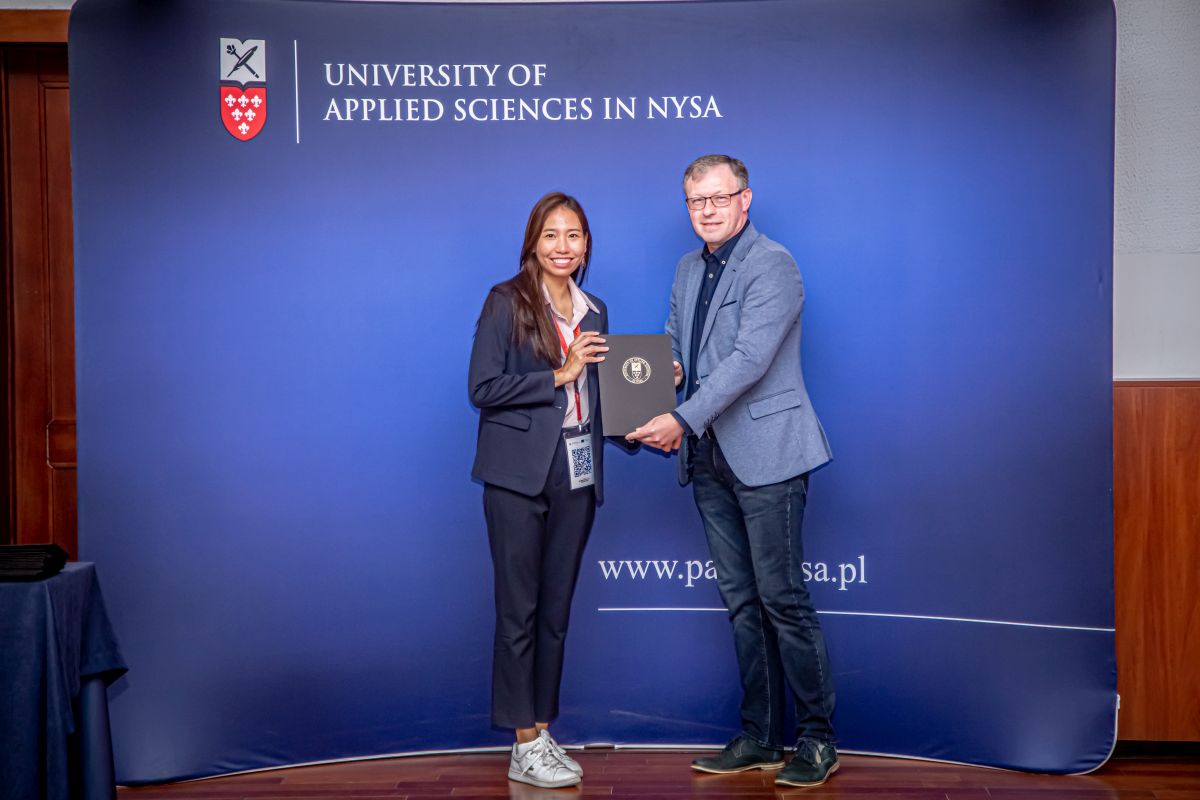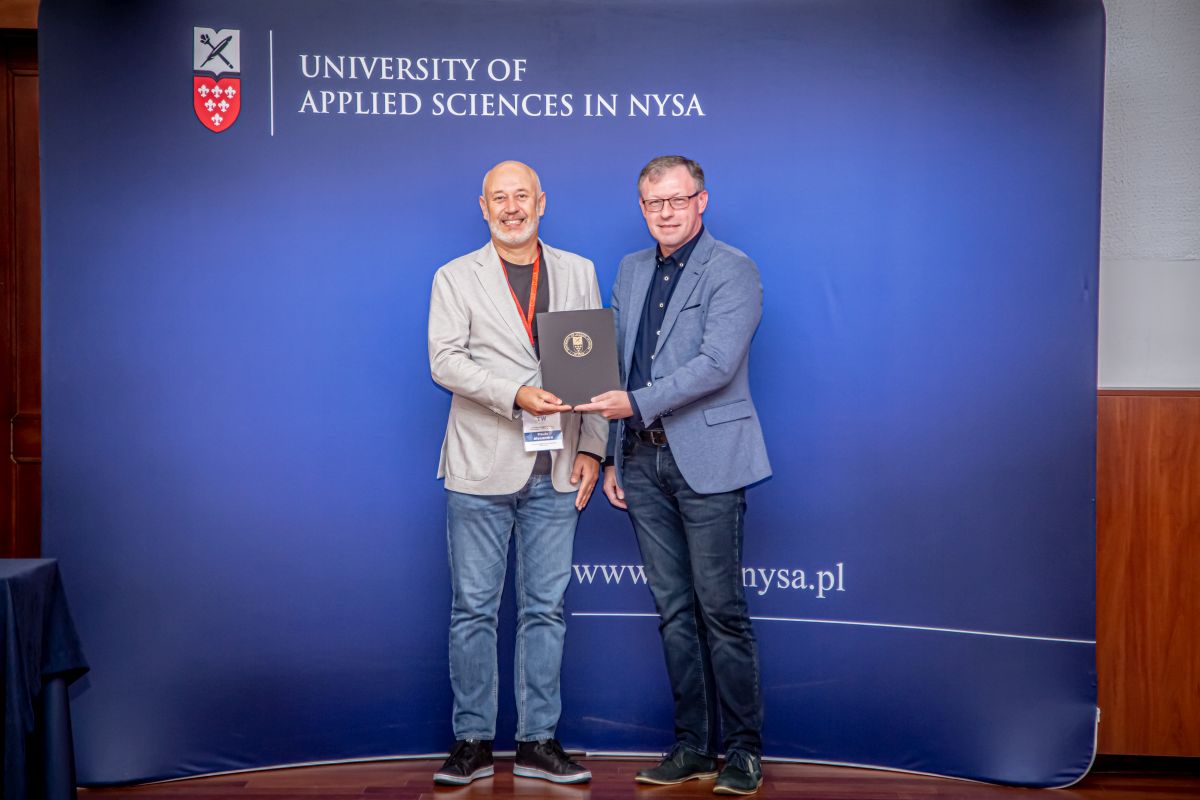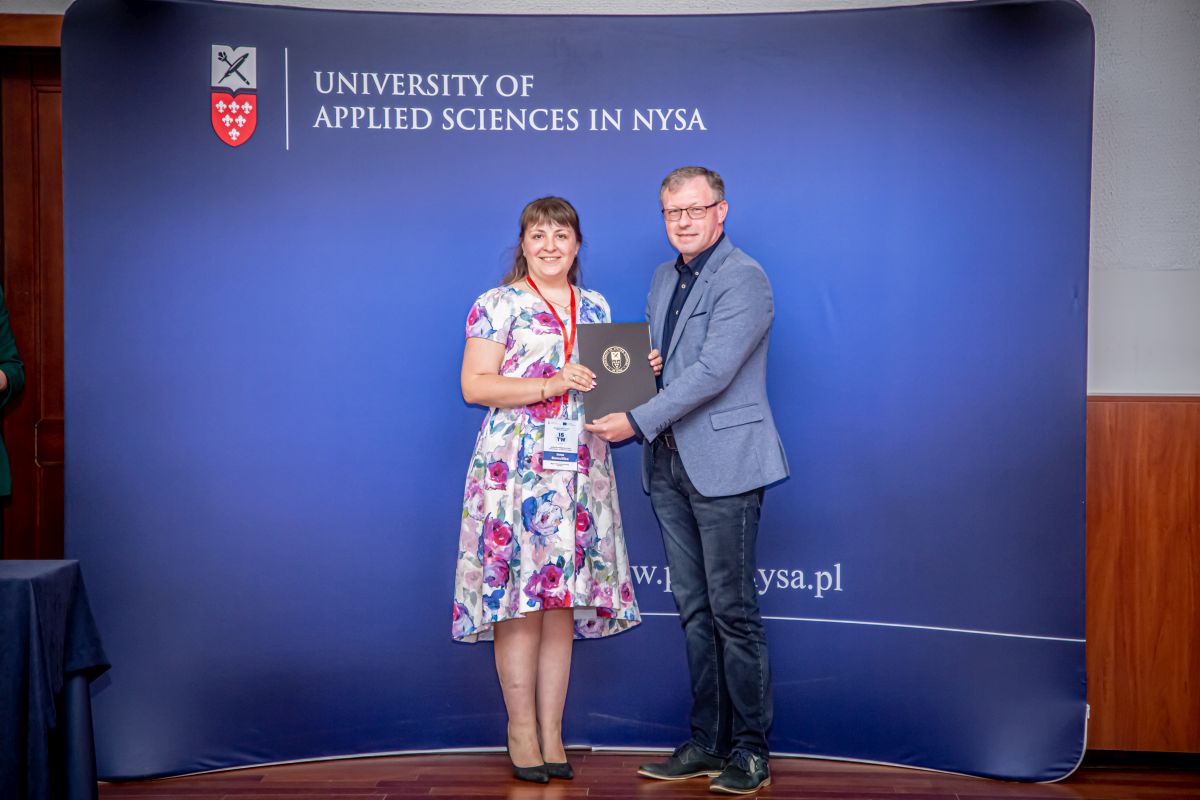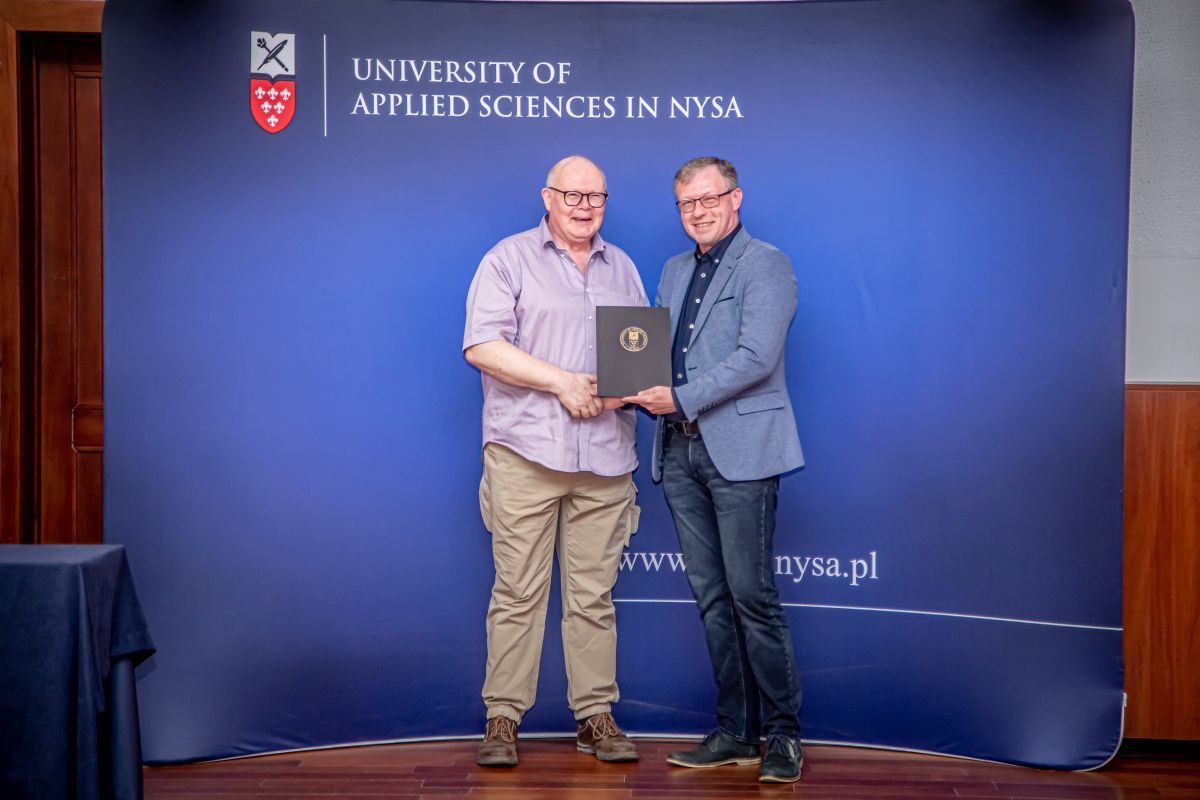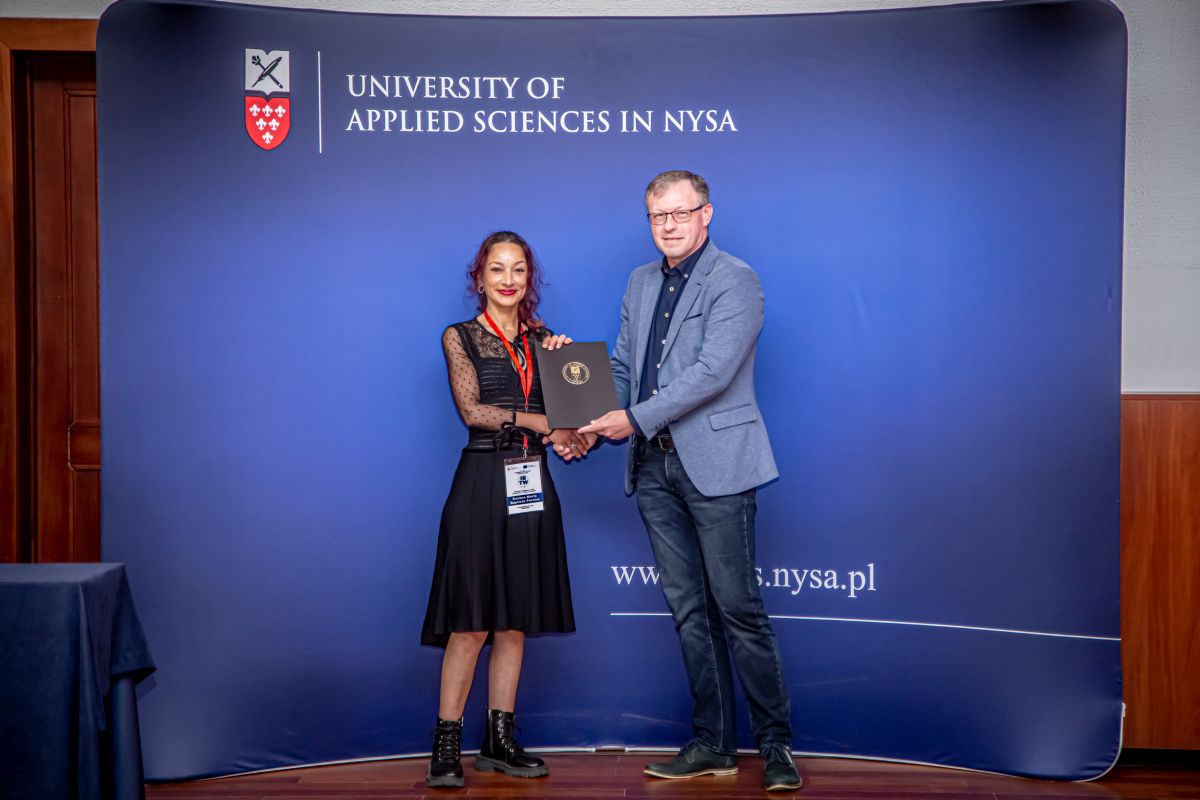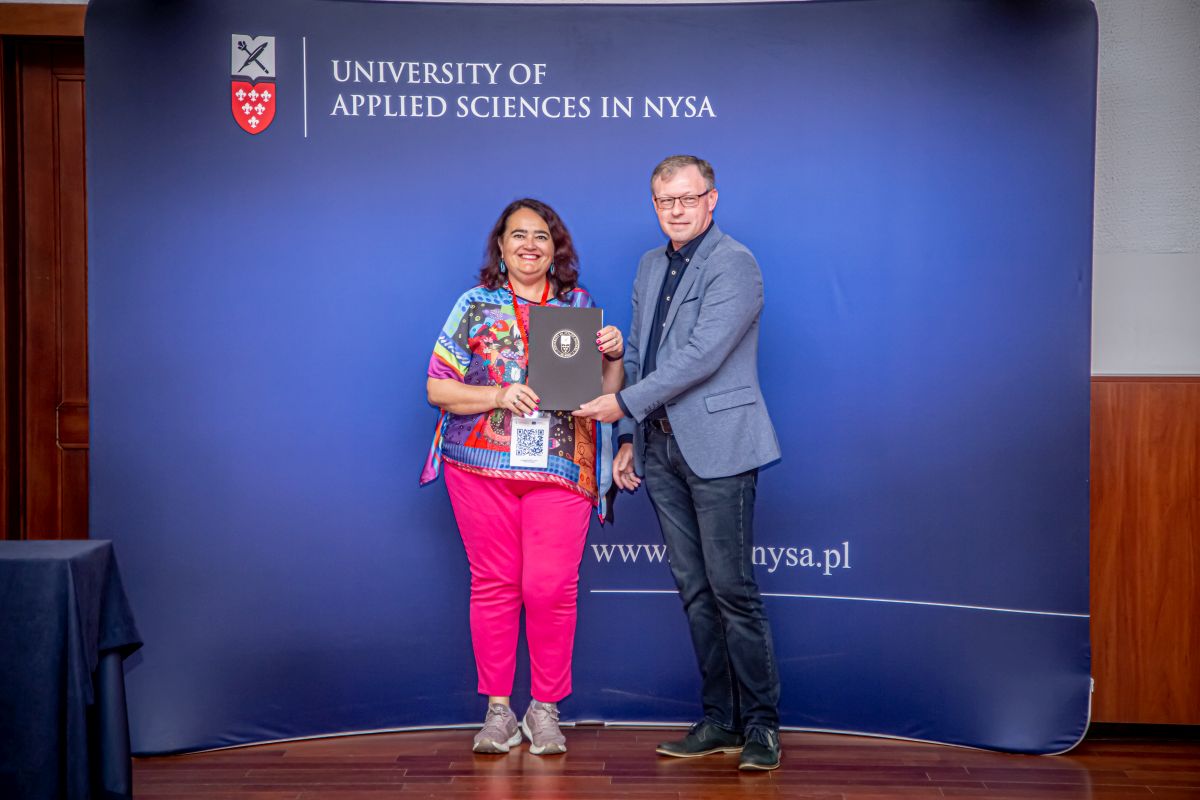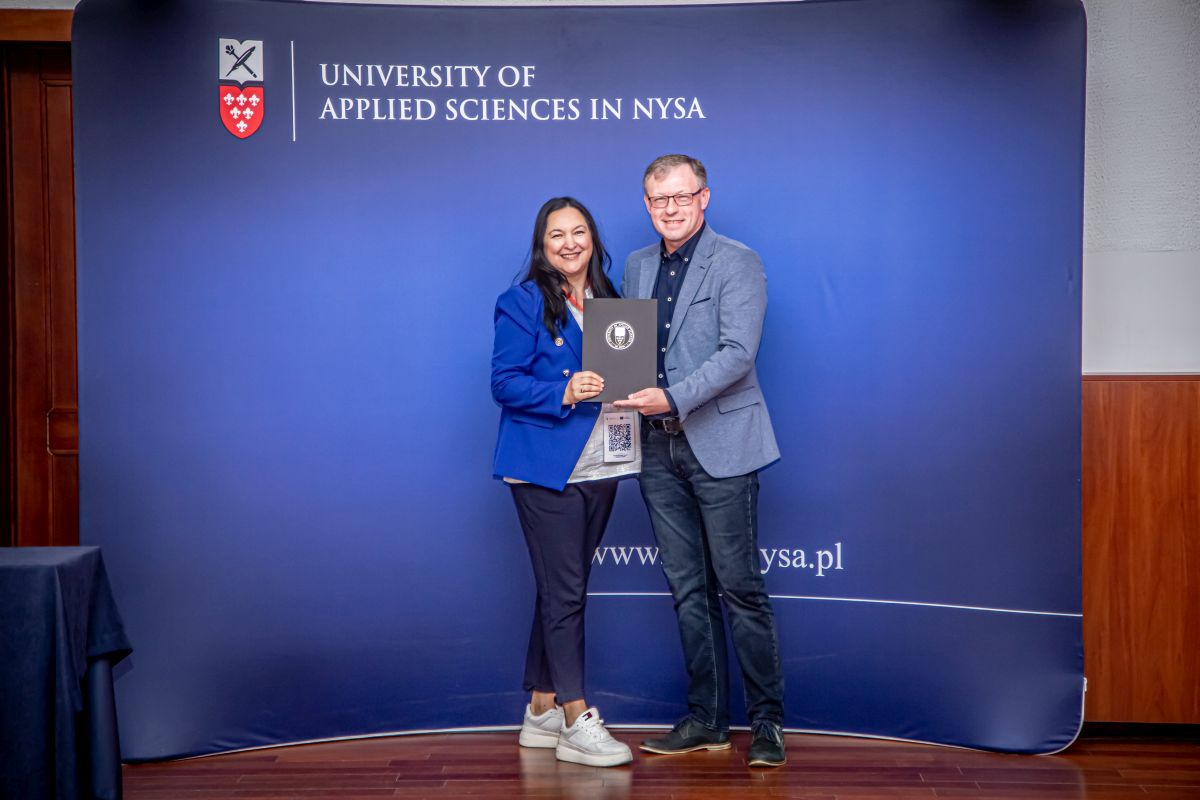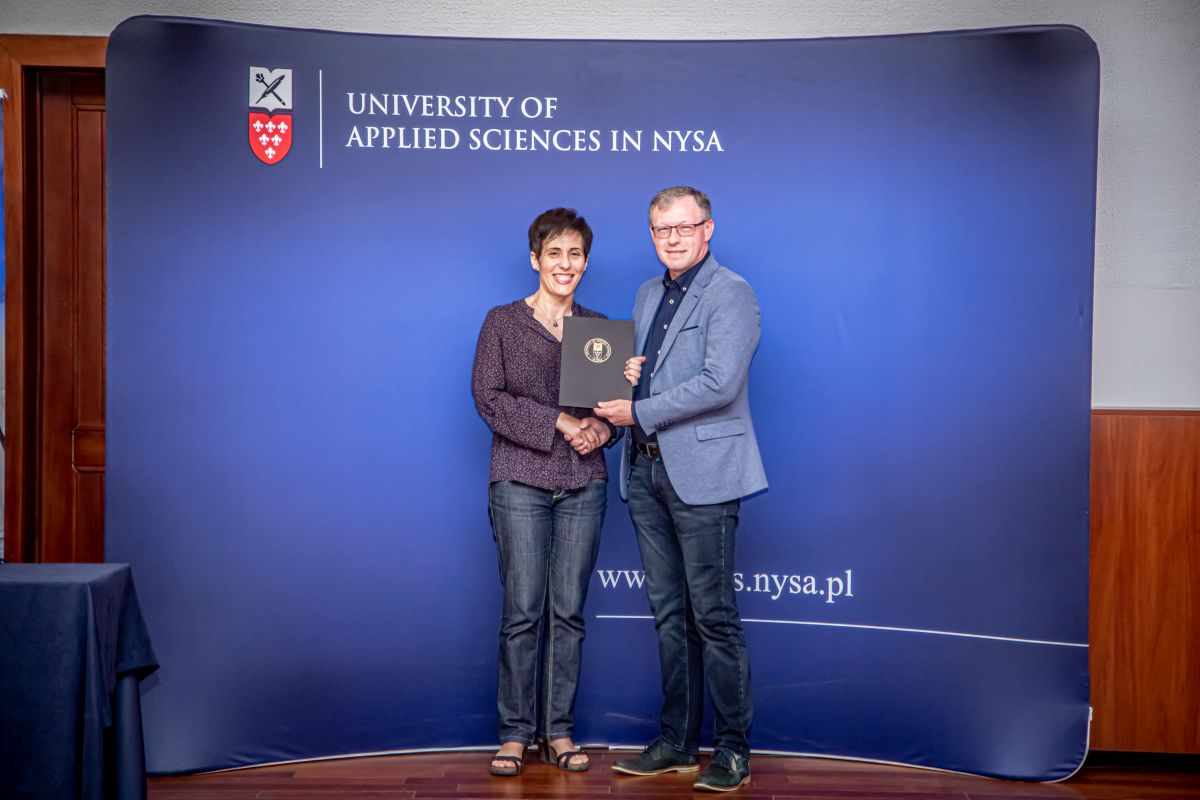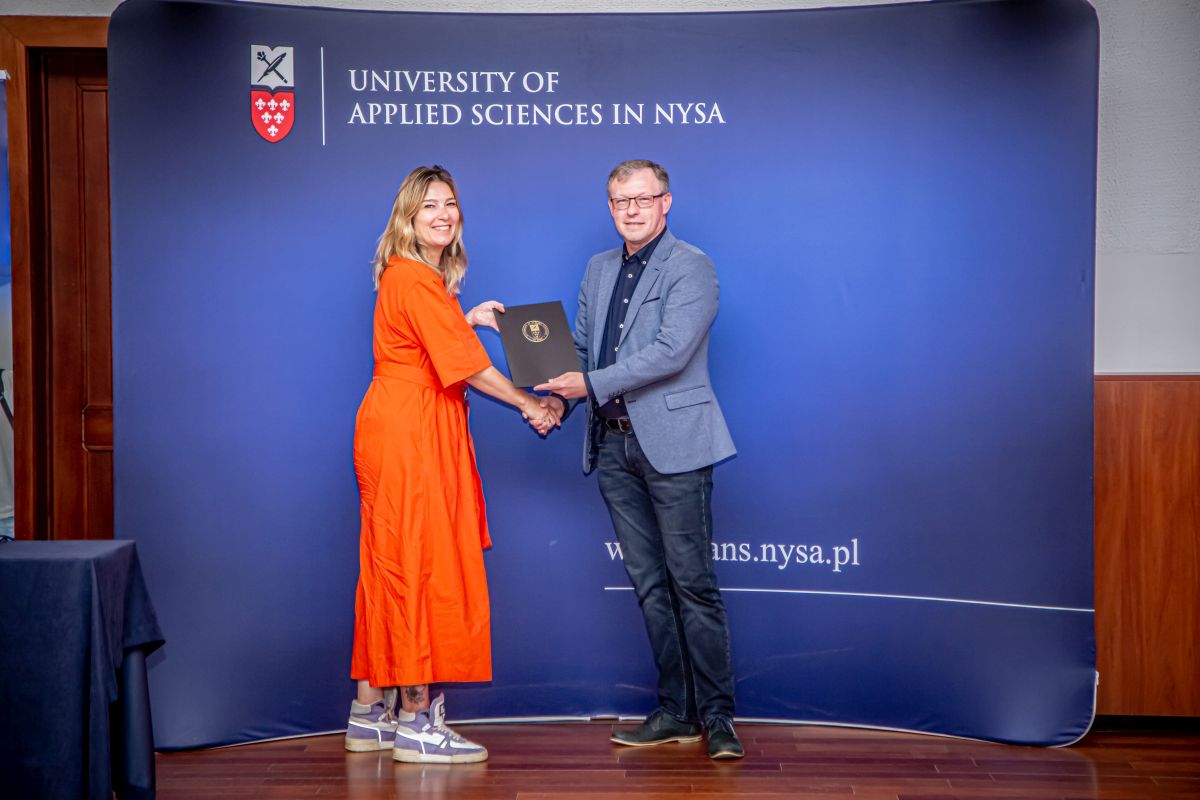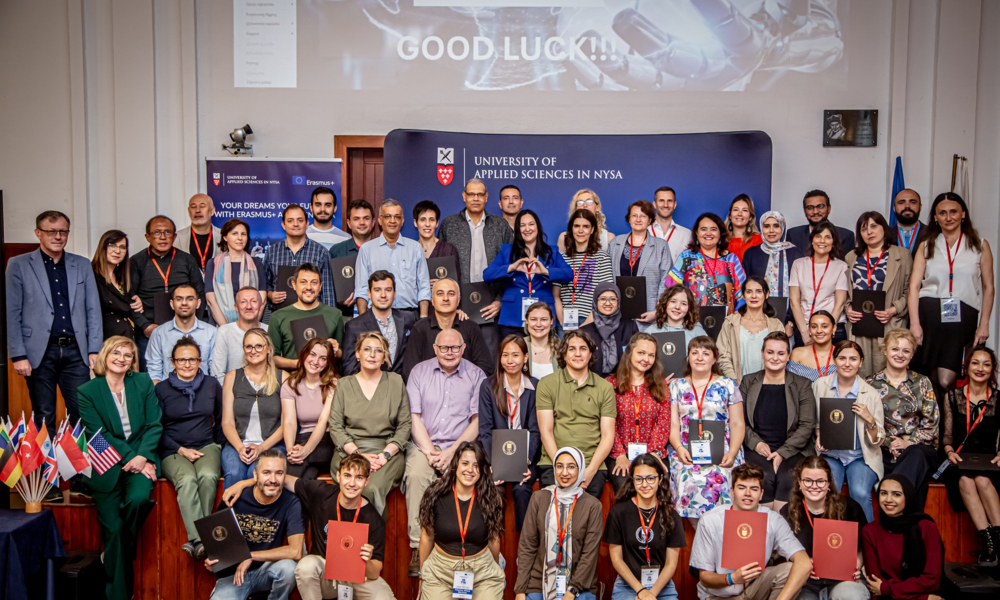International Cooperation Office
- 2024-05-27 12:21:00
- News
- Conference
May 20-24, 2024: 14th Edition of the International Staff Training Week at University of Applied Sciences in Nysa
52 participants from 23 countries across Europe, Africa, North and South America, and Asia attended the 14th edition of the International Staff Training Week titled "Artificial Intelligence at the Universities – a Boon or a Bane?" at the University of Applied Sciences in Nysa.
Participating Countries: Albania, Algeria, Azerbaijan, Montenegro, Egypt, France, Georgia, Spain, the Netherlands, India, Indonesia, Kosovo, Latvia, Mexico, Germany, Poland, Portugal, Romania, Thailand, Turkey, Ukraine, the USA, and Italy.
Program Highlights: The event focused on the role of AI in the higher education institutions, covering topics such as:
1. "New Era of AI – Where to Start?"
2. "The Perils and Promise of Generative AI in Higher Education"
3. "AI in Higher Education – Best Practices"
4. "Artificial Intelligence (AI) in Cybersecurity: Trends and Challenges"
5. "Instructional AI: Uses That Empower Teaching"
6. "Showcasing Innovations and Best Practices"
7. "Deep Learning for Everyone: Unleash the Power of AI"
8. "Practical Demonstration of How a Hacking Attack Works"
As always, the most significant benefit of the event was the exchange of experiences among participants who work at various levels within their institutions as lecturers, department heads, administrative staff, promotion officers, librarians, or technical staff, offering diverse perspectives on the discussed topics.
Additional Activities:
- Lectures for UAS In Nysa students.
- Meetings with representatives from various departments and units of the university, including the Head of the International Cooperation Office, Anna Opałka.
- Tours of the university's infrastructure and the historical sites of Nysa.
- A private concert by students from the Jazz Department, an illumination show by architecture students, and an integration meeting at Fort Prusy, preceded by a guided tour of the city led by English Philology lecturer Sebastian Zatylny.
- A sweet surprise prepared by the Set Point Diet scientific circle, consisting of dietetic desserts made by Dietetics students under the guidance of Dr. Marta Misiarz.
Participants also took part in the summary of the "International One Book Club" project and the certification ceremony, led by Dr. Agnieszka Kaczmarek, an English Philology lecturer and academic advisor for the project in collaboration with California State University Bakersfield.
Discussion Themes in TABLE TALKS:
1. Transparency and Trust in AI
2. Ethical Considerations in AI Education
3. Data Privacy and Security
4. Teacher Training and Professional Development
5. Impact of AI on Learning
6. Everyday Incorporation of AI
7. Successful AI Applications in University Teaching
8. Generative AI in Higher Education
Summary of Event Conclusions: Artificial intelligence (AI) has rapidly evolved over the past few decades, transforming various sectors and industries, including higher education. The integration of AI technology in universities has sparked a debate on whether it is a boon or a bane. This debate hinges on the potential benefits and drawbacks of AI in higher education. Participants agreed that the key lies in how responsibly universities adopt and integrate AI technologies, maximizing benefits while addressing potential drawbacks. Achieving a balance between leveraging AI's capabilities and maintaining core educational principles is essential for ensuring a positive transformation of higher education in the AI era.
Potential Benefits of Integrating AI in Education:
1. Personalized Learning: AI can analyze individual student needs and learning paces, tailoring educational materials and teaching methods for better learning outcomes.
2. Automation of Administrative Tasks: AI can take over routine administrative tasks such as student registration, grading, and schedule management, allowing educators to focus on teaching and research.
3. Advanced Analytical Tools: AI enables the analysis of large educational data sets, helping to identify trends, predict academic issues, and develop strategies to improve education quality.
4. Supporting Distance Learning: AI can facilitate remote education through interactive platforms, virtual assistants, and student progress monitoring systems.
Potential Challenges and Risks:
1. Lack of Human Interaction: Excessive automation and reliance on AI may reduce direct interactions between students and educators, negatively impacting the development of social and communication skills.
2. Privacy Concerns: The use of AI involves collecting and analyzing large amounts of personal student data, raising concerns about data privacy and security.
3. Ethics and Bias: AI may unintentionally introduce and reinforce biases, leading to unfair treatment of students. Strict ethical guidelines are necessary.
4. Implementation Costs: Integrating advanced AI systems can be costly, posing a barrier for some universities, especially those with limited financial resources.
Balance and Responsibility: To effectively integrate AI in higher education, universities must approach the process thoughtfully and responsibly. It is crucial to ensure a balance between utilizing AI technologies and maintaining fundamental educational principles. In implementing AI, universities should:
- Consult experts from various fields to ensure a comprehensive approach to AI integration.
- Train teaching staff in using AI tools and recognizing and countering potential risks.
- Monitor and evaluate the impact of AI on educational processes and continuously adjust implementation strategies based on the results.
- Ensure transparency in data collection and usage, adhering to the highest standards of data privacy protection.
ISTW 2024 Program
ISTW 2024 Page
Anna Opałka University Coordinator of the Erasmus+ Program Head of the External Relations Department
Galeria
